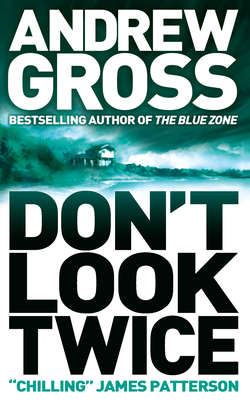Читать книгу Don’t Look Twice - Andrew Gross, Andrew Gross - Страница 18
ОглавлениеCHAPTER THIRTEEN
Bridgeport was just twenty minutes up the thruway from Greenwich, but it might as well have been in a different century.
The last fifty years had not been kind to Bridgeport. Once home to factories for companies like Underwood Typewriters, Singer Sewing Company, and Bassock Tool and Dye, it was always a blue-collar town, home to blacks and Hispanics and Portuguese. By the 1980s, its downtown had decayed and its factories had been abandoned. It had a lagging school system with clashing minorities living in throwback 1960s projects.
Artie Ewell was the head of the Gangs and Street Crime Unit. Hauck had worked with him several times on cases and at Fairfield County youth conferences where their interests overlapped.
Ewell was already familiar with Josephina Ruiz. An imposing black man, he had been a lane-clearing forward at UConn before it became a national power, and his office was covered with photographs of the charter school basketball program he ran each summer. He had interviewed the Ruiz family after the tragedy and decided not to pursue any charges.
“Good family,” Ewell said, motioning to Hauck and Munoz to take a seat in his small office at the central police headquarters on Congress Street. “What could I do? The father’s back in Guatemala somewhere and the mother held down two jobs. There’s an older sister studying to be a nurse, I think, or something. Another brother somewhere. They live up in the Tombs…” Ewell sighed. “We looked it over two ways to Sunday, but we couldn’t find anything other than some awfully bad decision-making on the part of the kids involved. The DA decided not to charge. I heard about what happened down there today, Ty. You think this is connected?”
“The brother,” Hauck said, still in his jeans and pullover, “someone said he was in a gang?”
“Gang?” The burly detective linked his thick hands together, leaned back, and crossed his ankles. “The Ruizs live in the Tombs, Ty, a housing complex over on Pembroke. You’re familiar with that part of town, are you not, Detective Munoz?”
“I’m familiar.” Munoz, who was from neighboring Fairfield, nodded.
“If we brought in everyone who was part of some gang”—Artie Ewell laughed— “we’d have more kids in jail than in school. Everyone connects to the gangs up here. Every neighborhood has its own colors. The Cobras, they’re over on Grove; 9-Tre, they’re over on Sherman. Even the Crips and the Bloods have set up chapters now. You know what they say…Bridgeport’s a third black, a third Hispanic, and the rest just plain poor.”
Hauck knew he was right. The high school graduation rate was something like 70 percent. There were twenty murders committed last year. The crime index was twice the national average, ten times that of Greenwich. Like a sore on the perfect complexion of Fairfield County, Bridgeport was the town all the hedge funds and market booms forgot. The place you passed on the thruway, where the people who washed your linens and mowed your lawns went home every night.
“Any of them decked out in red bandanas?” Hauck asked him.
“Red bandanas…?” Ewell pursed his thick lips. “DR-17, maybe. Why?”
“Because that’s what the shooter was wearing, Artie.”
The heavy-set detective let out a cynical breath and rocked back in his chair. “Someone sees a black dude or a guy in a bandana in Greenwich and they immediately finger it for us…Must be something else you’re holding, Ty.”
Hauck glanced at Munoz, who took out the newspaper article, still in the evidence bag. “We found this in the getaway vehicle. Which was dumped about a mile away.”
The Bridgeport detective read the bold headline through the plastic.
“The manager of the Exxon station where this occurred was Sunil Gupta, whose son was one of the kids involved. The girl had a brother, Artie, who’s reputed to be in a gang. The shooter yelled out the victim’s name as they drove away.”
“So you’re thinking it was revenge?”
“I happened to have been there, Art. My daughter was with me. When it occurred. I guess I don’t know what I’m thinking, other than we’re lucky to be alive.”
Art Ewell shook his head with a disgusted air. “Yeah, I understand.” He pushed his large frame out of the chair, reached into his desk drawer, and took out his gun. “C’mon, let’s find that kid,” he said. “Just remember, keep your eyes open, Dorothy…You’re not in Kansas anymore.”
